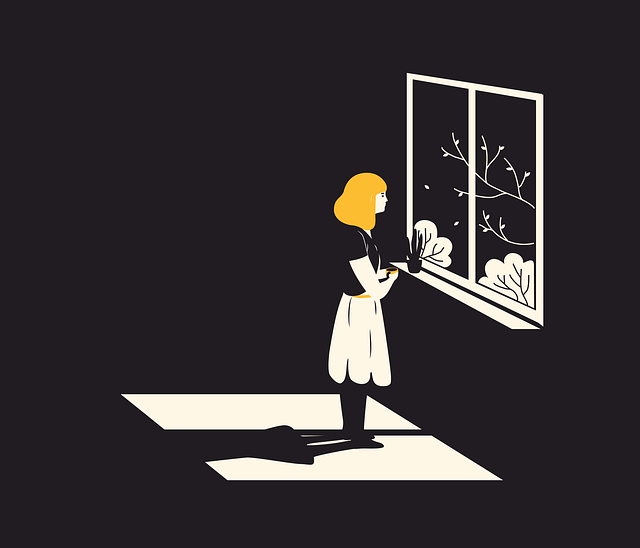What makes MDD such a Crippling Mental Health Condition?
The challenges of dealing with major depressive disorder (MDD)
Major Depressive Disorder (MDD) is characterized by intense sadness over a long period of time. This condition, also known as clinical depression, can affect several areas of your life, affecting sleep, appetite, and physical function
MDD is common in people with mental illness, with an estimated 7% of adults in the United States experiencing major depressive episodes (2017 data).
Common symptoms of depression
Major depressive disorder requires symptoms to persist for at least 2 weeks, with a marked difference in functionality from previous activities. Symptoms of depression typically vary from mild to severe and include the following:
- Tired of life Thoughts or actions.
- agitation – restless and fearful
- Lack of self worthfeeling guilty or worthless.
- Apathy – Loss of interest in pleasurable activities.
- Changes in appetite– weight loss or weight gain.
- Fatigue – Feeling tired and lacking energy.
- Concentration related problems – Difficulty making decisions or focusing on activities.
It is worth noting that certain symptoms of other non-depression related disorders may arise. These can include vitamin deficiencies, thyroid problems, and tumors.
According to psychiatry.org, 1/15 US adults suffer from depression every year. In the course of life, 1/6 people experience a depressive episode. (https://www.psychiatry.org/patients-families/depression/what-is-depression)
What is it like to live with major depression?
As with any mental illness, some days naturally feel better than others. MDD makes everything a lot more difficult. The treatment regimen for MDD varies from person to person based on the relationship between the healthcare provider and the patient.
Interpersonal relationships are often exposed to enormous stress at MDD, but so are all other relationships – social and professional. The feeling of depression is difficult to shake in major depression because the negative feelings are so overwhelming that they are paralyzing.
What Can You Personally Do To Relieve Depression?

Photo credit: Pixabay
There are many activities, routines, and thought processes that can help alleviate the severity of your depressive disorder. These include the following 5 options for a healthy stay:
- Be aware of your thoughts and try to block out the negatives.
- Never make important decisions when you are in the wrong mood.
- Always have help on hand, such as from friends, relatives, and healthcare professionals.
- Stay tuned by reading more about the major depressive disorder and its best treatment.
- Do not stay alone; Make sure you have a tight circle around you and feed on their positive energy.
What are the treatment options for major depression?
Everyone deals with depression differently. Some people take it really badly and don't respond to traditional treatment regimens like SSRIs and SNRIs.
When medication and counseling don't seem to be working and symptoms of depression are severe, special care must be taken. Your doctor may recommend surgical or nonsurgical procedures to manage your MDD.
Non-invasive procedures like Deep TMS ™ have been shown to be highly effective in dealing with therapy-resistant MDD. A special helmet with magnetic coils is used to transmit transcranial magnetic stimulation pulses to problematic areas of the brain. TMS treatments for MDD typically last 20 minutes – 40 minutes per session, 5 sessions per week, for 4-6 weeks.
More invasive surgical procedures are also highly effective, but they have potentially negative side effects. These include infection at the surgical site, trauma, or scarring. Other issues to deal with include pain, nerve damage, and complications.
In deep brain stimulation (DBS), for example, small electrodes are implanted in the brain to regulate mood.
However, complications from such treatments include language problems, headaches, infections, strokes, bleeding, or sensory / motor control problems.
Bilateral cingulotomy is another type of brain surgery that is used to treat people with major depressive disorder that is unresponsive to traditional therapies. This surgical procedure targets 2 areas of the brain, including the frontal lobes and the cingulate gyrus.
This controversial procedure is only used as a last resort after all other treatment options have been thoroughly exhausted. Surgeons believe depression can be relieved by breaking the circuits between habitual behavior and painful emotions. (https://www.verywellmind.com/bilateral-cingulotomy-380662)
Suicide rates in clinical depression
Overall, depression is the most common cause of suicide and accounts for more than 50% of all suicide attempts. The CDC data shows that suicide was the 10th leading cause of death in the United States in 2009, with 36,909 cases, and it was particularly common in the 25- to 34-year-old age group.
Depression is more common in women than men, but 4 times more men than women die from suicide. (https://www.medscape.com/answers/286759-14675/what-is-the- suicide-rate-in-persons-with-depressive-disorder-clinical-depression)
About the author:
Sarah Sidney is a creative and intelligent content creator with nearly 7 years of experience in design, logo and marketing. She always strives for excellence in her job and is a great leader.
Comments are closed.